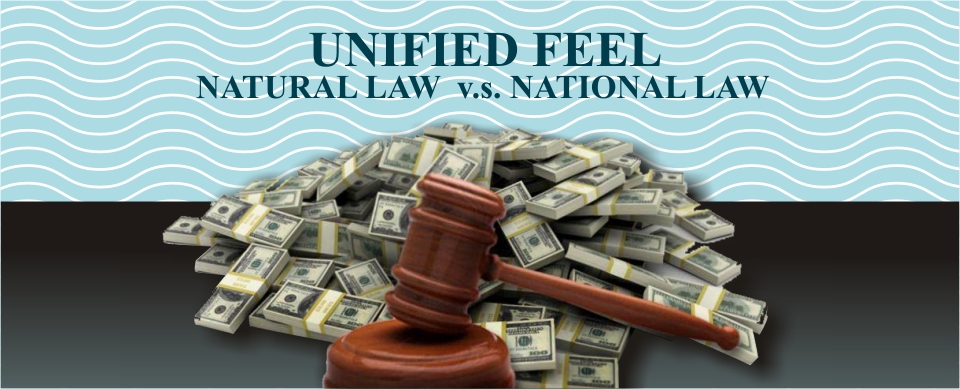
Explore the world of large-cap stocks and learn how these can shape your portfolio. For instance, Berkshire owns restaurant chain Dairy Queen, railroad giant BNSF, and Berkshire Hathaway Energy utility company. With such a broad range of businesses, the company has a reputation for safety, security, and consistent performance. The company’s valuation fell amid bearish momentum for the broader market but subsequently rebounded above that threshold.
Blue chip companies tend to be free of debt, and most blue chip companies offer favourable dividends to their shareholders. They can also invest in blue chips by buying a fund that targets large-cap companies or market leaders. Many of these companies may be considered blue chips, but investors may also gain useful exposure to other companies. The term ‘blue chip’ is thought to have originated from the game of poker, where blue chips are the highest-value chips. The term was later applied to stocks, with blue chip stocks referring to the most valuable and reliable stocks on the market. These stocks were considered the ‘top chips’ of the stock market, just as blue chips were the top chips in poker.
FAQs about blue chip stocks
Over the years, a blue chip company will have survived financial challenges and difficult market cycles. It will have turned in a steady return and typically paid dividends year in and year out. They are usually listed on major stock exchanges, such as the NYSE and the Nasdaq. Blue-chip stocks are good stocks to invest in but may only be right for some portfolios. Spread bets and CFDs are complex instruments and come with a high risk of losing money rapidly due to leverage.
However, Heinz is arguably most famous for its ketchup which has a market share of over 50% within the US. These types of companies used to have a long history of sound financial performance. Get stock recommendations, portfolio guidance, and more from The Motley Fool’s premium services. Blue chip stocks are seen as safer investments than other stocks because of their long histories. Blue chip companies have reputable brands that have been built and maintained over many years.
Hands-off investing with blue chip funds
He also notes that TSMC has generated more stable earnings than many of its peers, which has led to more consistent (and growing) dividends over time. Taiwan Semiconductor’s stock trades 29% below our fair value estimate of $139. Since most major stock market indices consist mainly of blue-chip stocks, ETFs offer traders a vehicle to trade a group of blue chips in just one shot. ETFs what’s wrong with the american tax system are less volatile and less risky than individual stocks, but they can also be traded via CFDs and other leveraged derivatives. It is the world’s largest soft drink company, but also operates in the fruit-juice sector. This kind of flexibility, shown through refranchising, is one of many factors that has keeps the Coca-Cola stock price growing and on the blue chip companies list.
That and the fact that they have weathered multiple downturns in the economy make them stable companies to have in a portfolio. After choosing the target stocks, select your entry points or attractive price points. You can use price points to set limit orders for the blue-chip stocks in a brokerage account. You can base price targets on past price action, technical indications like the 150-day EMA or even the analysts. The analysts’ targets, the consensus target, is a closely watched figure for most blue-chip stocks and will often produce strong moves when reached, touched or crossed by the price action.
It is rumoured that Oliver Gingold, an early employee of the company that would become Dow Jones, coined this term sometime around the 1920s. Gingold was supposedly standing by the ticker at the brokerage that later became Merrill Lynch and noticed that several trades were executed at $200 a share or more. He proclaimed that he intended to return to his office and “write about these blue chip stocks”. These high-growth upstarts aim to be the blue chip stocks of tomorrow. You can invest in blue chip stocks through a stock brokerage such as Fidelity or Charles Schwab. Simply search for the company’s ticker symbol in the broker’s stock screener.
- They allow traders to leverage by trading on the margin and trade both long and short positions.
- Tracking blue chip companies is a good way of gauging the viability of a particular industry or sector – as blue chip companies represent the strongest stocks in their respective industry.
- However, when you apply disciplined risk management, it can be more profitable than trading the stock itself.
- Blue-chip stocks cut across various industries and some notable ones include Walmart, American Express, Nike, Microsoft, Home Depot, JPMorgan Chase and Exxon Mobil.
- Constituents of the major global indices such as the NASDAQ, Dow Jones and FTSE 100 are considered blue chip stocks.
- More specifically, the stocks of companies with a market capitalization of at least $5 billion.
For example, if you own $1,000 shares of KO stock in June 2022, you would be in line to collect $5,520 in annual dividends. By reinvesting those dividends you would buy 22.66 new shares without having had to add any of your own money. However, the downside to having a portfolio that is overweight growth stocks or overweight value stocks is that it is likely to underperform at different times. Blue-chip stocks can be traded on through spread bets or CFDs, which are derivative products that allow you to speculate on the price movements of the blue-chip stock.
The Coca-Cola Company (KO)
However, because digital assets represent a new and risky market, it may be a stretch to apply the blue chip label to such a speculative asset. Blue chip stocks can be appropriate for the core holdings of a large portfolio. A diversified portfolio usually has some allocation of bonds and cash, in addition to stocks. Moreover, a portfolio’s allocation to stocks can be diversified among large-caps, mid-caps and small-caps, as well as domestic and international stocks. The name “blue chip” comes from the game of poker in which the blue chips have the highest value.
Blue-chip stocks offer stability, safety and dividends through companies with well-entrenched businesses that have proven they can stand the test of time (and pay dividends while doing it). Blue-chip stocks also tend to be substantial businesses, large or mega caps, with deep moats related to their brands, product(s) or industries. They offer an element of safety and income for investors in the long haul. Among the many benefits is reduced volatility and, in many cases, market-beating dividend yields. When it comes to the stock market and what risk-averse investors should focus on, there are blue-chip stocks and everything else.
Blue-chip stocks
Familiarity with a company makes stock buying more comfortable, and it’s exciting to become a partial owner of a business you know. Some companies meet the well-known and well-established criteria but are not well-capitalized enough to be blue chips. In 2020, several very well-known and well-established retailers were in this unfortunate category. Sears and JCPenney were both household names with well-established businesses stretching back over a century.
BDA Advises Endeavour United on Sale of Crefact to Hiruta Kogyo – PR.com
BDA Advises Endeavour United on Sale of Crefact to Hiruta Kogyo.
Posted: Tue, 05 Sep 2023 11:15:38 GMT [source]
In addition, an account with a dedicated futures broker is required in most cases. Traders can potentially profit by switching from one blue-chip to the next promising one. They buy them at a low price when they see an increased buying volume and then ride the trend until the price stops rising. Then they look for the next cheap blue-chip stock that they can buy. United Parcel Service, or UPS, is an American multinational package delivery and supply chain management company. Founded in 1907, UPS was originally the American Messenger Company that used to delivery letters and parcels by foot or bicycle.
Pros and Cons of Investing in Blue-Chip Stocks
We offer over 9,500 shares and ETFs across a diverse range of sectors, including blue-chip technology, retail, healthcare, travel and engineering stocks. Due to their long-standing financial security within the market, many traders consider blue-chip stocks to be a worthwhile investment, especially those with high dividend payout ratios. However, if you are considering investing in blue-chip companies, you should thoroughly review a company’s fundamentals in order to evaluate all elements that may affect your decision.
The term “blue chip” was first used to describe high-quality stocks in the early 1920s by a Dow Jones employee, Oliver Gingold. Oliver was standing by the stock ticker at the brokerage firm when he observed some shares trading at $200, $250, or more. Blue chip stocks do not necessarily need to be highly priced but should be of high quality. A blue chip is a stock of a well-established corporation with a reputation for reliability, quality, and financial stability. Blue chip stocks are usually the market leaders in their sectors and have a market capitalization running into billions of dollars. They are the most popular stocks to buy, due to their long track records of steady earnings or paying dividends.
Today, DuPont is one of the world’s largest chemical companies in the world, based on market capitalisation, and is also one of the highest revenue generators in its industry. The company is a diversified chemical producer, whose products are sold in an array of different industries, including agriculture, construction, transportation and electronics and communication. In 2015, Heinz merged with one of the other biggest names in the same industry, Kraft, and formed the Kraft Heinz Company.
Nokia is an example of a company that was once a blue chip, but went downhill as Apple entered the mobile phone market. Deutsche Bank, among other European banks, didn’t manage to come out of the 2008 global recession unscathed, losing its blue chip status in the process. Unexpected changes in the market or economy are a challenge every company faces, but for the most part, blue chip companies are more likely to bounce back over the rest. If you’re thinking about getting into investing, you should first get an idea of the landscape and what options are available to you. You might want to start safe by investing in shares that don’t pose any major risks – and this is where it’s important to understand what ‘blue chip companies’ means.







